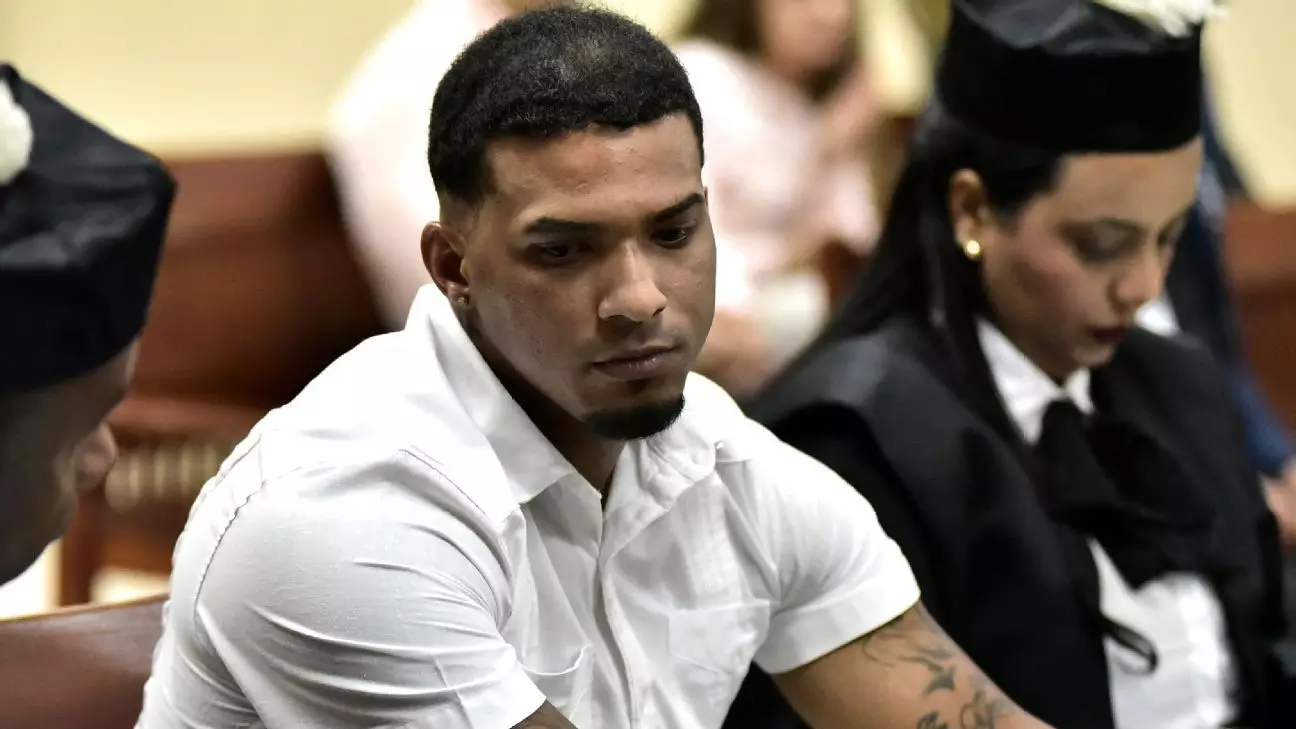The recent events surrounding Wander Franco, the once-celebrated shortstop for the Tampa Bay Rays, have raised critical questions about morality, power dynamics, and the responsibilities that come with fame. Franco, who made his MLB debut at just 20 years old and signed an unprecedented $182 million contract, has become emblematic of the pitfalls of celebrity. His conviction for sexual abuse involving a minor not only tarnishes his personal reputation but also casts a long shadow over the world of sports, which struggles with issues of accountability.
In today’s society, the intertwining of celebrity status and ethical behavior often leads to distorted perceptions of right and wrong. Franco’s story is no exception. Once heralded as a prodigy and future Hall of Famer, his fall from grace serves as a stark reminder that talent does not equate to moral integrity. It’s alarming how the glitz and glamour of professional sports can create an environment where lines become easily blurred, and individuals feel they can operate above the law. The narrative surrounding Franco transforms him from a celebrated athlete to a cautionary tale of recklessness and moral failure.
Justice Amidst Controversy
The judicial proceedings regarding Franco and the trafficking conviction of the victim’s mother reveal a complicated web of exploitation where financial motives overshadow basic ethical standards. The mother, sentenced to ten years in prison for her complicity, throws a chilling light on the dynamics of abuse within families. The judicial outcomes—Franco receiving a mere suspended sentence despite the heinous nature of his actions—beg the question: is justice truly served?
This disparity in sentencing amplifies societal tensions surrounding child protection laws. How can we justify leniency presented to someone in Franco’s position when victims are often left voiceless and powerless? Such a ruling contradicts our collective moral outrage regarding child exploitation. It raises uncomfortable doubts about the thresholds of culpability for individuals who misuse their power, particularly in a landscape filled with financial and social capital.
The Danger of Enabling Behavior
Franco’s journey reveals more than just personal failure; it highlights a systemic issue within Major League Baseball and beyond. The league’s protocols regarding misconduct have often felt more like damage control than a commitment to genuine change. Major League Baseball’s statement, boasting of a “Joint Domestic Violence, Sexual Assault and Child Abuse Policy,” sounds hollow in light of how long it took them to act on Franco’s alleged misconduct. Here lies a colossal hypocrisy: the league preaches accountability while, in practice, it seems to prioritize its branding over the welfare of its players and victims alike.
The league’s handling of the situation also raises questions about the platforms that allow such behaviors to flourish. While they have taken initial steps to address these heinous actions, the real challenge lies in creating an environment where the stigma of abuse becomes too heavy for any player to bear in silence. Enabling environments cultivate toxicity—one where power dynamics can lead to egregious violations of trust, as exemplified by Franco’s actions.
Impact on Culture and Future Generations
The societal implications of Franco’s downfall are immense. When young athletes look up to figures like him—who embody both aspiration and notoriety—the messages sent through their behaviors become integral to shaping future generations. The glamor associated with professional sports often overshadows the moral responsibilities of the individuals in the spotlight.
In a way, Franco symbolizes a resistance to confront uncomfortable realities while the sports community looks to rebuild its image of integrity. Major League Baseball should reassess its disciplinary measures, promoting a culture that actively condemns abuse rather than sweep it under the proverbial rug. This is not just about one player; it’s about the systemic change that must occur within sports culture as a whole.
Living in an era where sociopolitical issues related to abuse and morality cannot be ignored, the fall of Wander Franco forces us to reflect on our societal values. This chilling saga serves as a call to action to ensure that the next generation of athletes understands that greatness is not solely defined by skill on the field but is inherently tied to the ethical standards they uphold off it.

